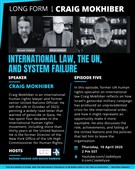At around 10:00 p.m. on 28 November 2013, police forces stormed the home of activist Alaa Abd El Fattah. They had no search warrant. When his wife Manal demanded to see it they were both beaten up. Police personnel took their computers and their telephones. Their two-year old son, Khaled, was asleep in the next room.
An arrest warrant was issued for Abd El Fattah following Tuesday’s violent dispersal of protestors under a new law effectively banning street protest in Egypt. At least fifty-one people were arrested that day, among them several prominent activists. All were beaten and the women were sexually assaulted. Later that day, authorities issued an arrest warrant for Abd El Fattah`s for the alleged incitement and organization of the protest. A warrant for the arrest of Ahmed Maher, founder of the 6th April Youth Movement, was also issued.
Abd El Fattah had stated publicly that he would turn himself in on Saturday but the police violently raided his home earlier tonight.
His current whereabouts remain unknown. The police refused to give his wife any information.
Authorities’ persecution of Alaa Abd El Fattah is a recurring theme in Egypt. He was jailed under the Mubarak regime for forty-five days and again under the rule of the Supreme Council of the Armed Forces in 2011, when he returned from giving a keynote speech at a technology conference in San Francisco to turn himself in. He remained in jail for almost two months, missing the birth of his son, Khalid. He also faced trumped up charges designed to intimidate protest under the Morsi government in 2013 along with popular satirist Bassem Youssef.
The sudden and violent nature of Abd El Fattah’s arrest raises serious concern. Of the activists arrested on 26 November, all were subjected to torture by the police. The murky, unaccountable police system gives us cause for concern that he may remain in disappearance until after the weekend.
Egyptian activists have shown clearly that they will resist the recent, oppressive anti-protest law. Two protests were held the day after it came into effect on 26 November and another on 27 November, which featured thousands of people marching through Downtown Cairo and to the gates of Parliament Street. An additional protest occurred earlier today at Cairo University, and was attacked by the police with tear gas and shotguns. At least one student was killed.
This is a rolling press release that will update with new information.
Contact @orhamilton for further information.
![[Egyptian activist Alaa Abd El-Fatah. Photo from manalaa.net]](https://kms.jadaliyya.com/Images/357x383xo/Alaa_Abd_El-Fatah_profile_photo.jpg)





